Poem In Your Pocket Day 2019
Poem in Your Pocket Day – April 18, 2019 – is an international movement that encourages people to centre poetry within their daily interactions.
On PIYP Day, select a poem, carry it with you, and share it with others at schools, bookstores, libraries, parks, workplaces, coffee shops, street corners, and on social media using the hashtag #PocketPoem.
The 2019 Poem in Your Pocket Day Postcard collection is here!
This year’s Poem In Your Pocket Collection features poetry by: Sarah Yi-Mei Tsiang, Fiona Tinwei Lam, Eleonore Schönmaier, Harry Posner, Charlie Petch, Jim Nason, Kathryn Mockler, Lorie Miseck, Allison Lasorda, Kjmunro, Adebe Derango-Adem, Lorne Daniel, Heather Cadsby, Marilyn Bowering and Yvonne Bloemr.
Read their poems below and share with others.
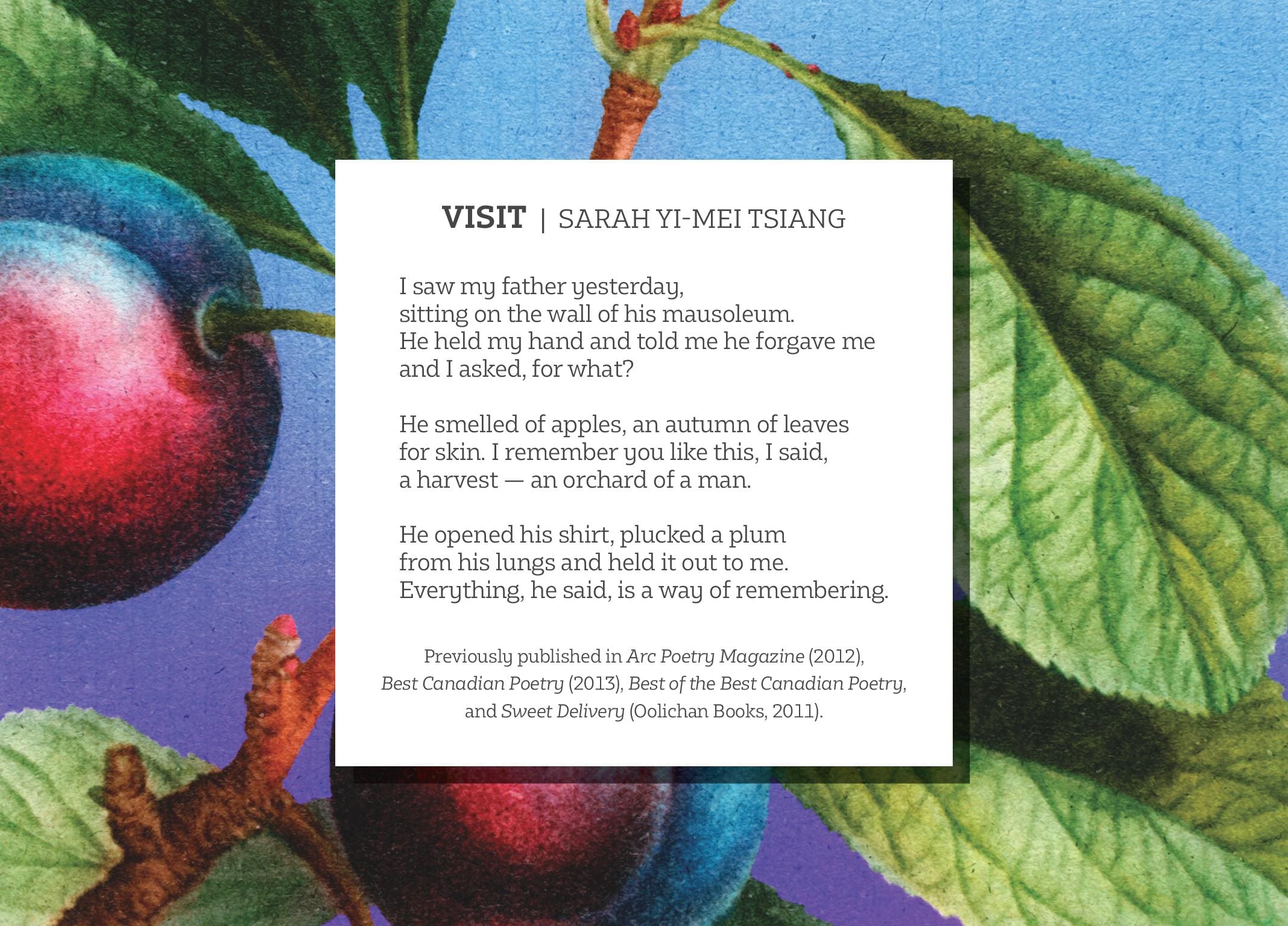
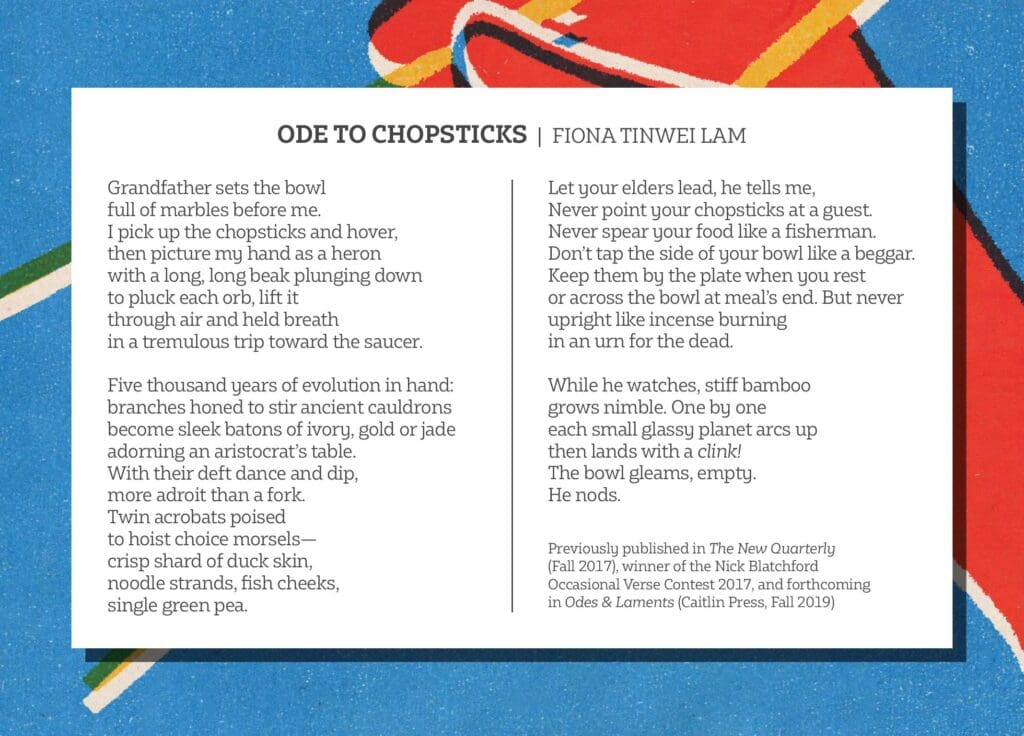
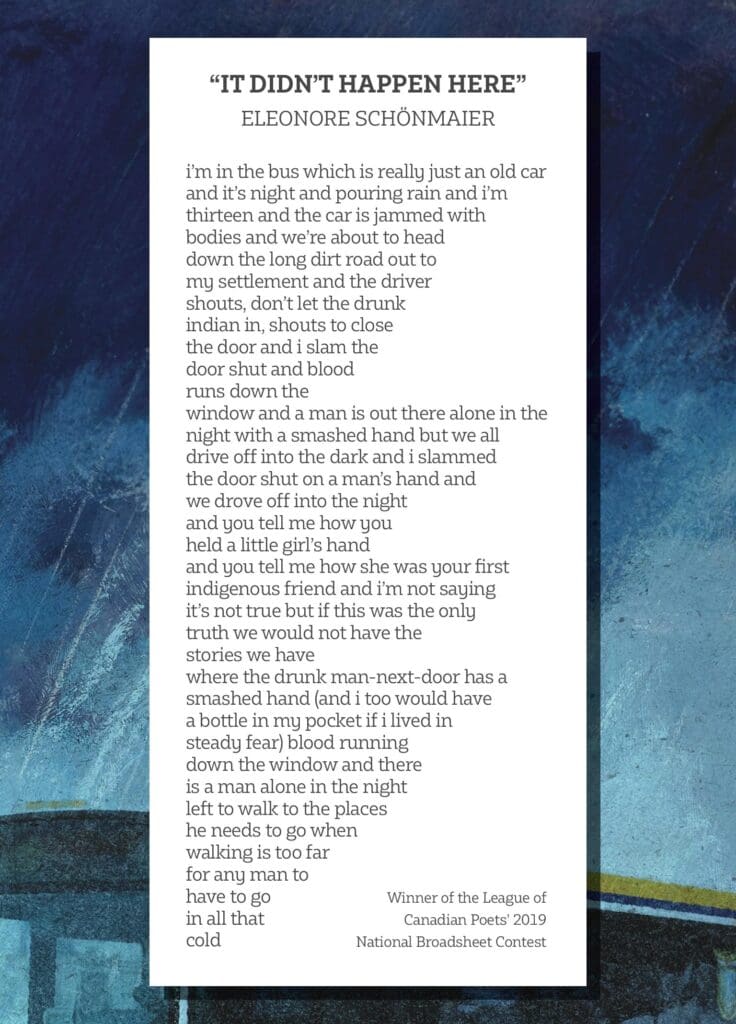
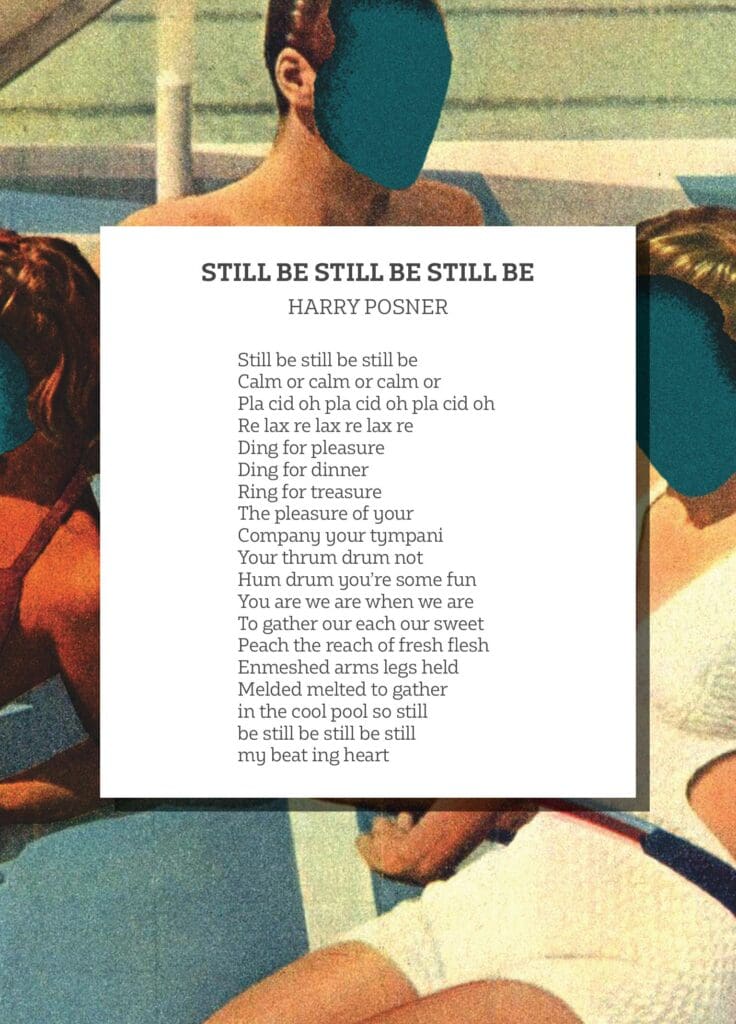
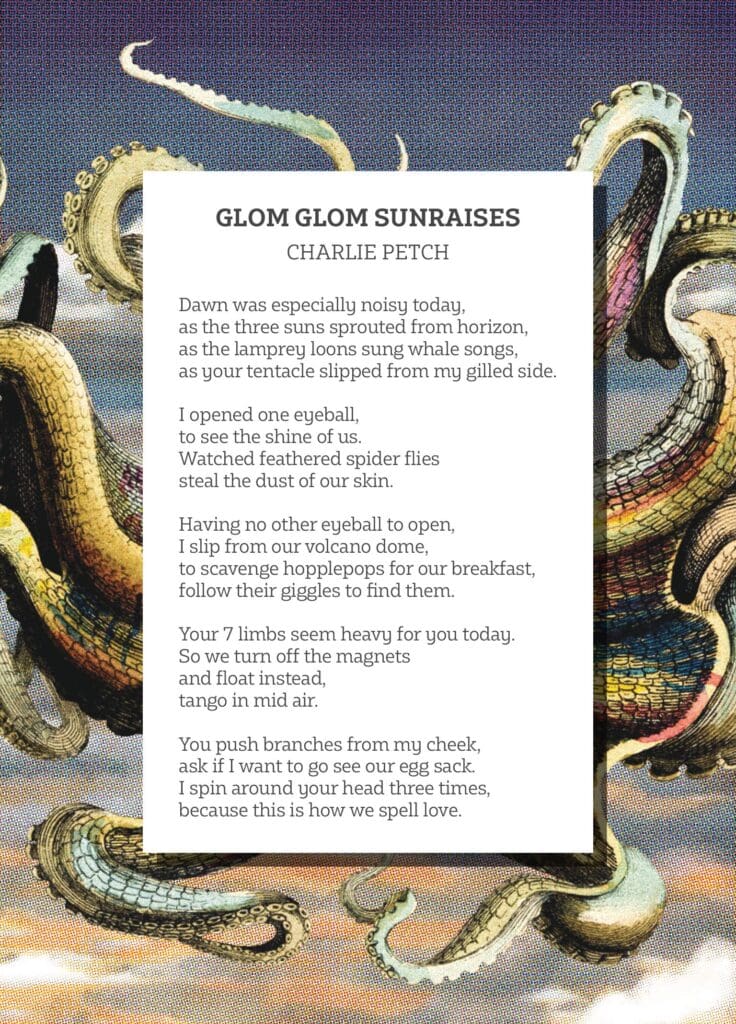
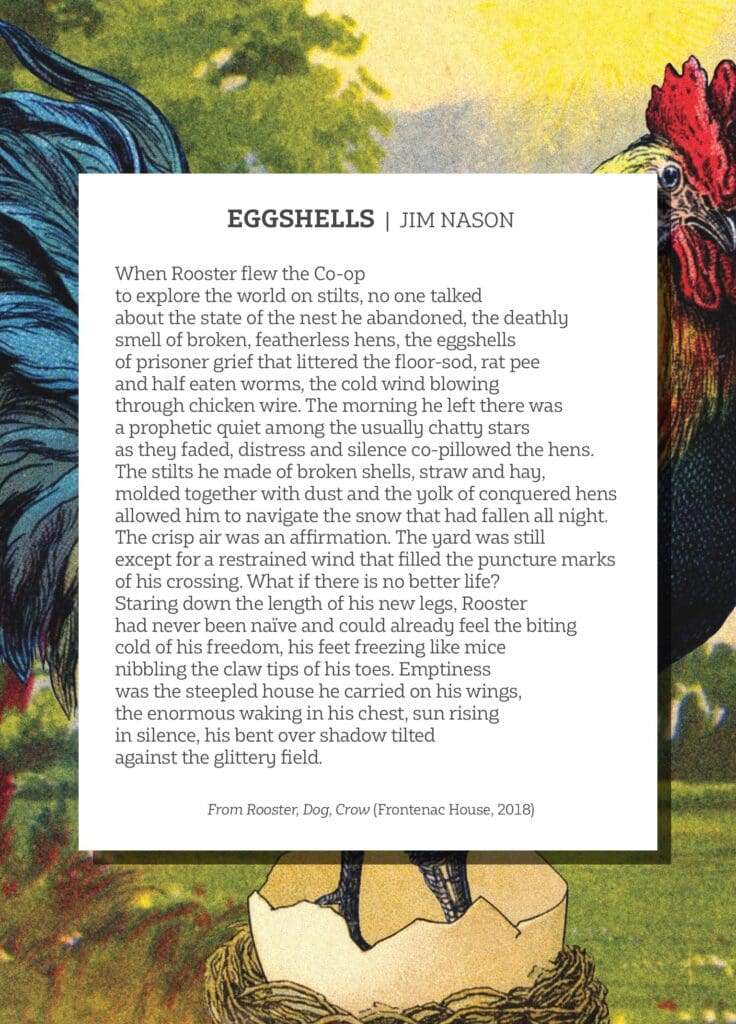
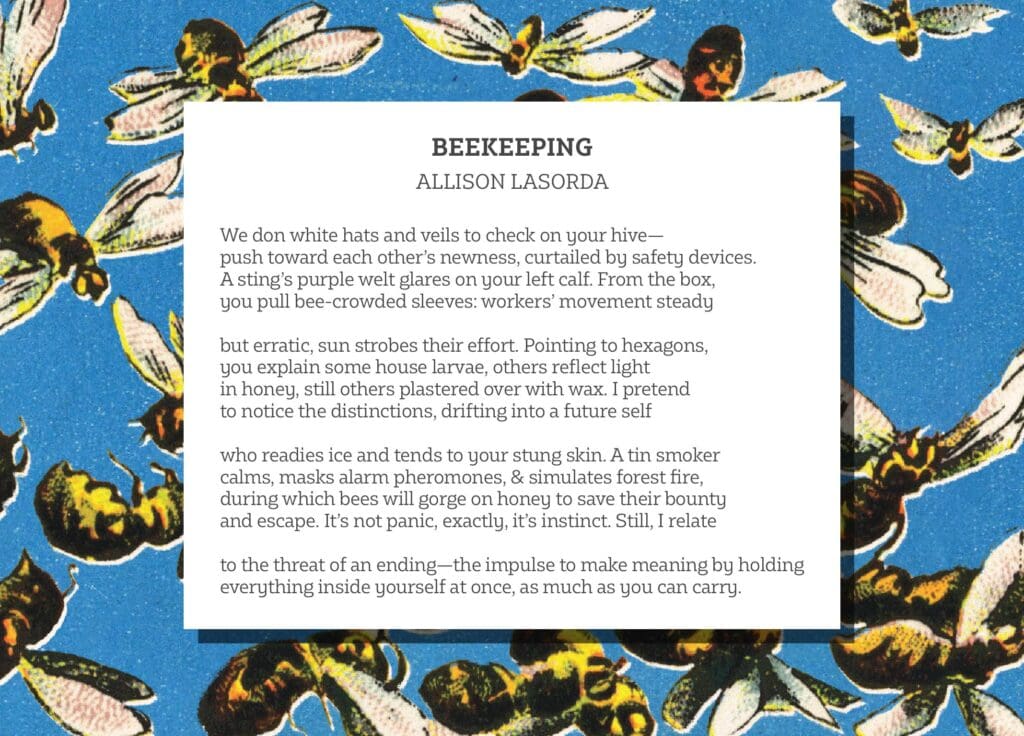
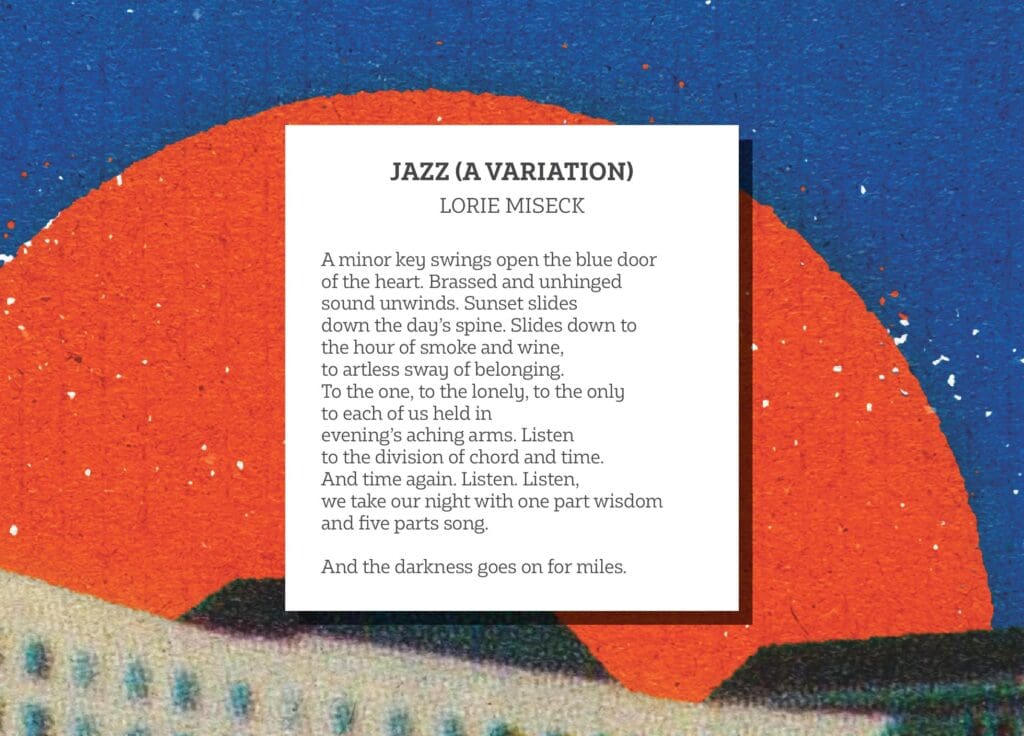
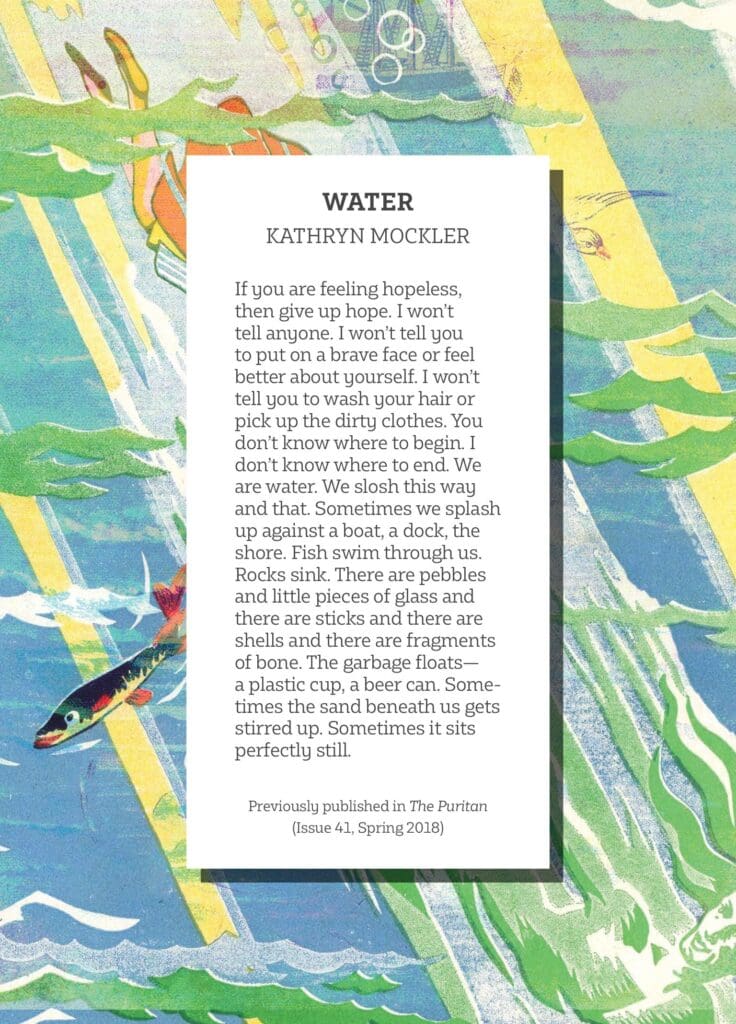
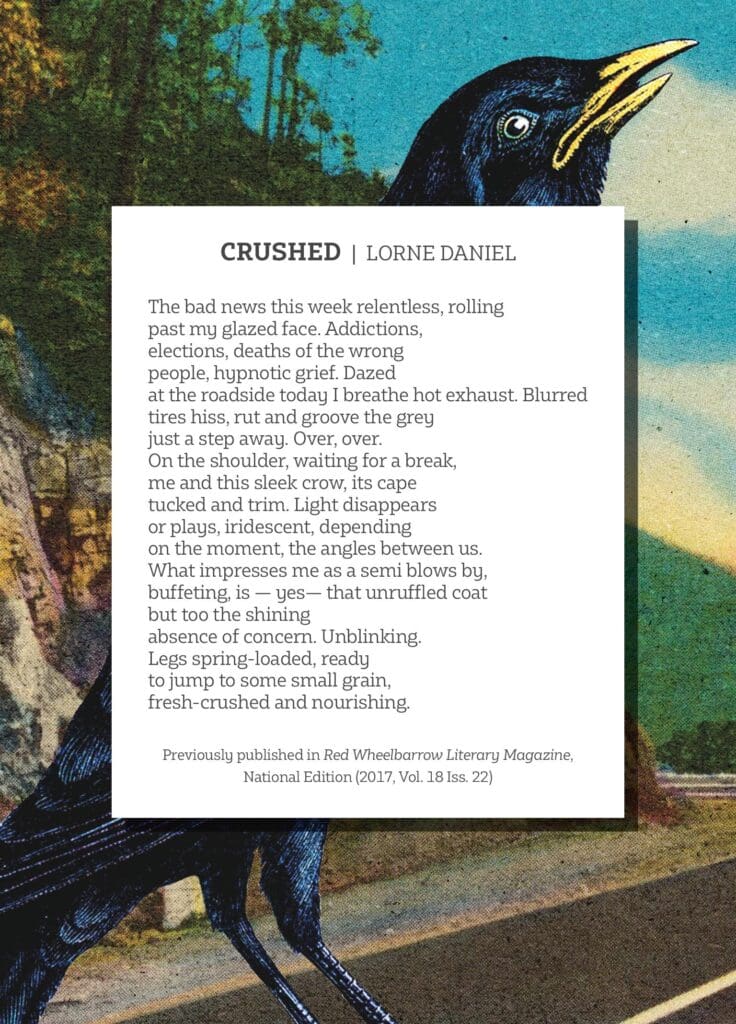
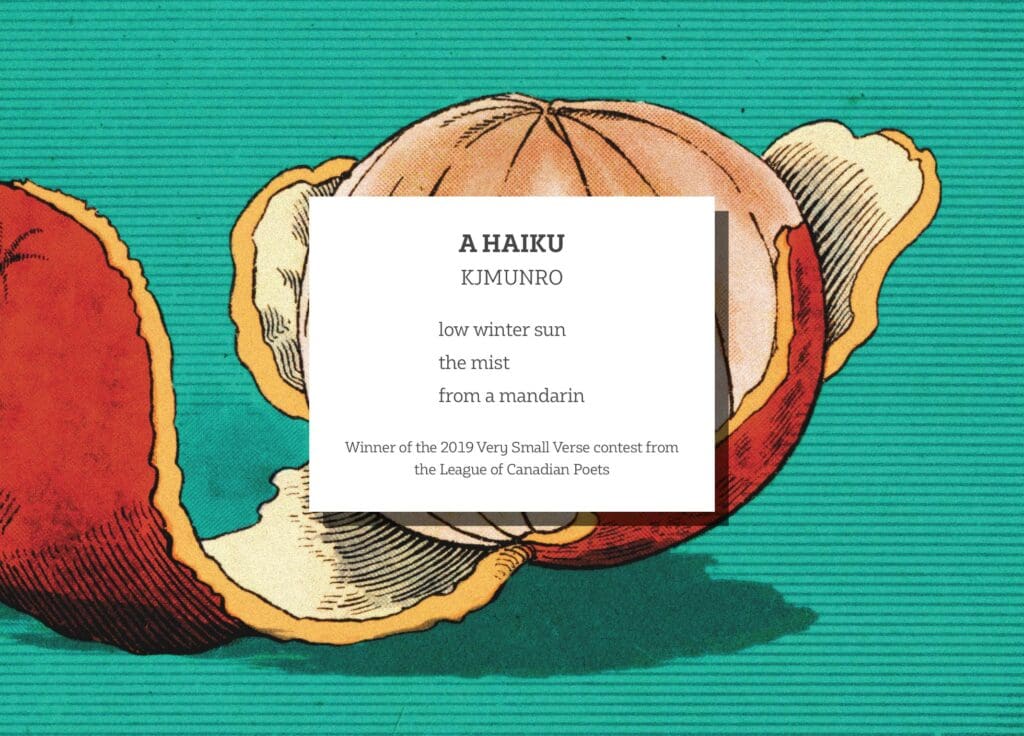
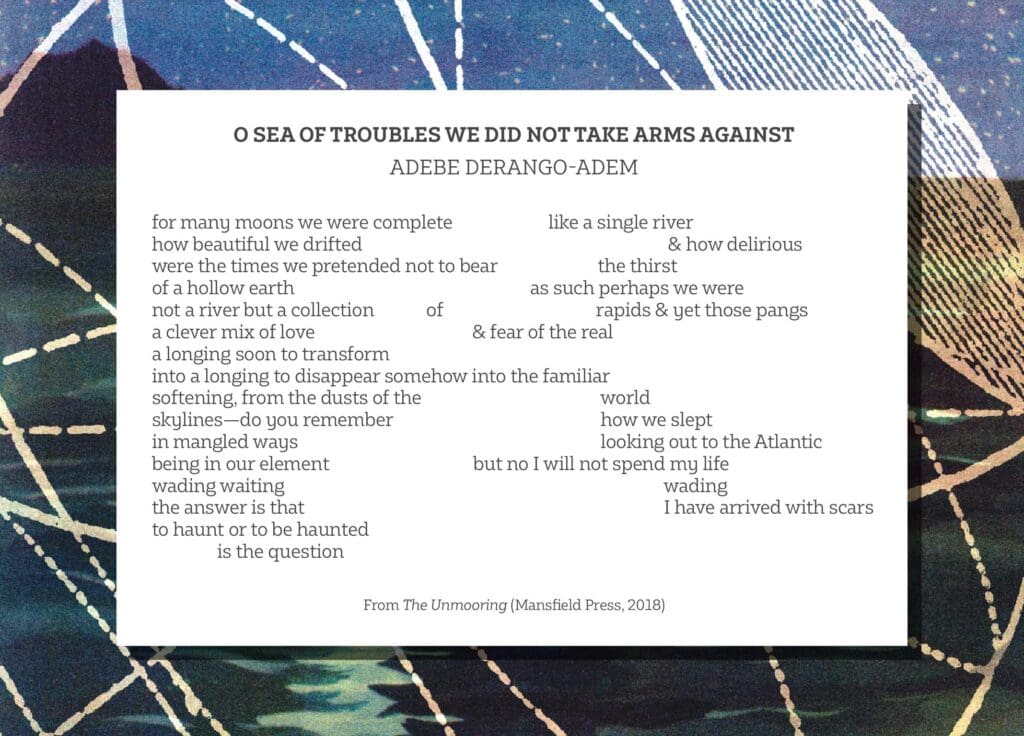
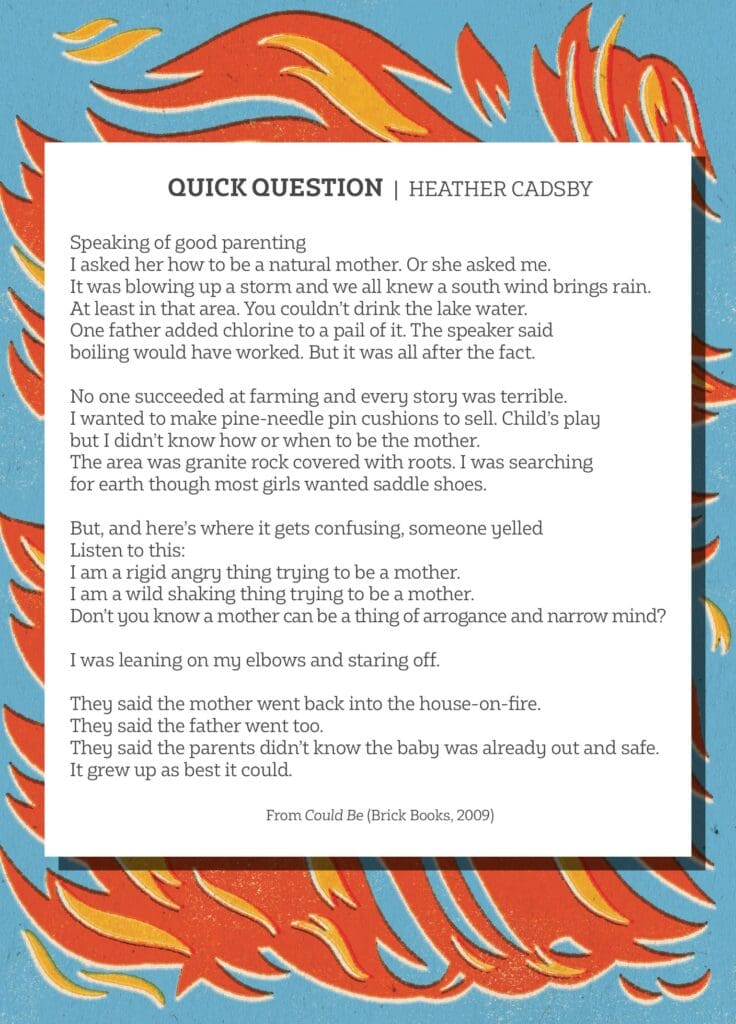


Visit
Sarah Yi Mei Tsiang
I saw my father yesterday,
sitting on the wall of his mausoleum.
He held my hand and told me he forgave me
and I asked, for what?
He smelled of apples, an autumn of leaves
for skin. I remember you like this, I said,
a harvest – an orchard of a man.
He opened his shirt, plucked a plum
from his lungs and held it out to me,
Everything, he said, is a way of remembering.
Previously published in Arc Poetry Magazine (2012),
Best Canadian Poetry (2013), Best of the Best Canadian Poetry; and Sweet Delivery (Oolichan Books, 2011).
Sarah Yi-Mei Tsiang is the author of 10 books, including picture books, poetry, and fiction. Her award winning work has been internationally sold and translated. She is currently an adjunct professor of Creative Writing at the University of
British Columbia.
—–
Ode to Chopsticks
Fiona Tinwei Lam
Grandfather sets the bowl
full of marbles before me.
I pick up the chopsticks and hover,
then picture my hand as a heron
with a long, long beak plunging down
to pluck each orb, lift it
through air and held breath
in a tremulous trip toward the saucer.
Five thousand years of evolution in hand:
branches honed to stir ancient cauldrons
become sleek batons of ivory, gold or jade
adorning an aristocrat’s table.
With their deft dance and dip,
more adroit than a fork.
Twin acrobats poised
to hoist choice morsels-
crisp shard of duck skin,
noodle strands, fish cheeks,
single green pea.
Let your elders lead, he tells me,
Never point your chopsticks at a guest.
Never spear your food like a fisherman.
Don’t tap the side of your bowl like a beggar.
Keep them by the plate when you rest
or across the bowl at meal’s end. But never
upright like incense burning
in an urn for the dead.
While he watches, stiff bamboo
grows nimble. One by one
each small glassy planet arcs up
then lands with a clink!
The bowl gleams, empty.
He nods.
Previously published in The New Quarterly (Fall 2017), winner of the Nick Blatchford Occasional Verse Contest 2017, and forthcoming in Odes & Laments (Caitlin Press, Fall 2019)
Fiona Tinwei Lam has authored two poetry books and a children’s book. She edited The Bright Well: Canadian Poems on Facing Cancer, and co-edited Love Me True: Writers on the Ins, Outs, Ups & Downs of Marriage. She has won The New Quarterly’s Nick Blatchford prize and was a finalist for the City of Vancouver Book Award. Her work appears in over thirty anthologies, including The Best of the Best Canadian Poetry: 10th Anniversary Edition and Forcefield: 77 Women Poets of BC. Her poetry videos have screened at festivals locally and internationally. Her
new collection of poems is forthcoming with Caitlin Press in 2019. fionalam.net
—–
“It didn’t happen here”
Eleonore Schönmaier
i’m in the bus which is really just an old car
and it’s night and pouring rain and i’m
thirteen and the car is jammed with
bodies and we’re about to head
down the long dirt road out to
my settlement and the driver
shouts, don’t let the drunk
indian in, shouts to close
the door and i slam the
door shut and blood
runs down the
window and a man is out there alone in the
night with a smashed hand but we all
drive off into the dark and i slammed
the door shut on a man’s hand and
we drove off into the night
and you tell me how you
held a little girl’s hand
and you tell me how she was your first
indigenous friend and i’m not saying
it’s not true but if this was the only
truth we would not have the
stories we have
where the drunk man-next-door has a
smashed hand (and i too would have
a bottle in my pocket if i lived in
steady fear) blood running
down the window and there
is a man alone in the night
left to walk to the places
he needs to go when
walking is too far
for any many to
have to go
in all that
cold
Winner of the League of Canadian Poets’ 2019 National Broadsheet Contest
Eleonore Schönmaier’s most recent poetry book is Dust Blown Side of the Journey from McGill-Queen’s University Press. Her other collections are the critically acclaimed Wavelengths of Your Song (2013) and Treading Fast Rivers (1999). Her poetry has won the Alfred G. Bailey Prize, the Earle Birney Prize, and is widely anthologized including publication in Best Canadian Poetry.
—–
Still Be Still Be Still Be
Harry Posner
Still be still be still be
Calm or calm or calm or
Pla cid oh pla cid oh pla cid ph
Re lax re lax re lax re
Ding for pleasure
Ding for dinner
Ring for treasure
The pleasure of your
Company your tympani
Your thrum drum not
Hum drum you’re some fun
You are we are when we are
To gather our each our sweet
Peach the reach of fresh flesh
Enmeshed arms legs held
Melded melted to gather
in the cool pool so still
be still be still be still
my beat ing heart
Harry Posner is the author of six books, including poetry, novels and short stories, and he has produced several spoken word CDs. He is a member of Words Aloud poetry collective, the Headwaters Writers Guild, Writers Ink Alton, and an Associate Member of the League of Canadian Poets. Posner is currently Dufferin County’s first Poet Laureate.
—–
Glom Glom Sunraises
Charlie Petch
Dawn was especially noisy today,
as the three suns sprouted from horizon,
as the lamprey loons sung whale songs,
as your tentacle slipped from my gilled side.
I opened one eyeball,
to see the shine of us.
Watched feathered spider flies
steal the dust of our skin.
Having no other eyeball to open,
I slip from our volcano dome,
to scavenge hopplepops for our breakfast,
follow their giggles to find them.
Your 7 limbs seem heavy for you today.
So we turn off the magnets
and float instead,
tango in mid air.
You push branches from my cheek,
ask if I want to go see our egg sack.
I spin around your head three times,
because this is how we spell love.
Charlie Petch is an award winning spoken word artist, playwright, haiku deathmaster and musical saw player. They have been published in Matrix, Descant, Toronto Quarterly and other journals. They are a member of the League of Canadian Poets and are the creative director and founder of “Hot Damn It’s A Queer Slam”. Find out more about them at charliecpetch.com
—–
Eggshells
Jim Nason
When Rooster flew the Co-op
to explore the world on stilts, no one talked
about the state of the nest he abandoned, the deathly
smell of broken, featherless hens, the eggshells
of prisoner grief that littered the floor-sod, rat pee
and half eaten worms, the cold wind blowing
through chicken wire. The morning he left there was
a prophetic quiet among the usually chatty stars
as they faded, distress and silence co-pillowed the hens.
The stilts he made of broken shells, straw and hay,
molded together with dust and the yolk of conquered hens
allowed him to navigate the snow that had fallen all night.
The crisp air was an affirmation. The yard was still
except for a restrained wind that filled the puncture marks
of his crossing. What if there is no better life?
Staring down the length of his new legs, Rooster
had never been naïve and could already feel the biting
cold of his freedom, his feet freezing like mice
nibbling the claw tips of his toes. Emptiness
was the steepled house he carried on his wings,
the enormous waking in his chest, sun rising
in silence, his bent over shadow titled
against the glittery field.
From Rooster, Dog, Crow (Frontenac House, 2018)
Jim Nason’s sixth poetry collection, Rooster, Dog, Crow was recently released with Frontenac House. He has also published a short story collection The Girl on the Escalator and his third novel, Spirit of a Hundred Thousand Dead Animals, was recently published by Signature Editions. Jim is a Finalist for the 2018 ReLit Poetry Award.
—–
Beekeeping
Allison LaSorda
We don white hats and veils to check on your hive-
push toward each other’s newness, curtailed by safety devices.
A sting’s purple welt glares on your left calf. From the box,
you pull bee-crowded sleeves: worker’s movement steady
but erratic, sun strobes their effort. Pointing to hexagons,
you explain some house larvae, others reflect light
in honey, still others plastered over with wax. I pretend
to notice the distinctions, drifting into a future self
who readies ice and tends to your stung skin. A tin smoker
calms, masks alarm pheromones, & simulates forest fire,
during which bees will gorge on honey to save their bounty
and escape. It’s not panic, exactly, it’s instinct. Still, I relate
to the threat of an ending-the impulse to make meaning by holding
everything inside yourself at once, as much as you can carry.
Allison LaSorda’s work has appeared in The Fiddlehead, North American Review,
Shenandoah, and Hazlitt. She was nominated for the 2018 National Magazine
Award for Personal Journalism.
—–
Jazz (A Variation)
Lorie Miseck
A minor key swings open the blue door
of the heart. Brassed and unhinged
sound unwinds. Sunset slides
down the day’s spine. Slides down to
the hour of smoke and wine,
to artless sway of belonging.
To the one, to the lonely, to the only
to each of us held in
evening’s aching arms. Listen
to the division of chord adn time.
And time again. Listen. Listen,
we take our night with one part wisdom
and five parts song.
And the darkness goes on for miles.
Lorie Miseck is a poet and photographer. She lives in Edmonton, Alberta.
—–
Water
Kathryn Mockler
If you are feeling hopeless,
then give up hope. I won’t
tell anyone. I won’t tell you
to put on a brave face or feel
better about yourself. I won’t
tell you to wash your hair or
pick up the dirty clothes. You
don’t know where to begin. I
don’t know where to end. We
are water. We slosh this way
and that. Sometimes we splash
up against a boat, a dock, the
shore. Fish swim through us.
Rocks sink. There are pebbles
and little pieces of glass and
there are sticks and there are
shells and there are fragments
of bone. The garbage floats-
a plastic cup, a beer can. Some-
times the sand beneath us gets
stirred up. Sometimes it sits
perfectly still.
Previously published in The Puritan
(Issue 41, Spring 2018)
Kathryn Mockler is the author of four books of poetry and six short films. She is the Canada Editor of Joyland: a hub for short fiction, the Publisher of The Rusty Toque, and she teaches creative writing at Western University
—–
Crushed
Lorne Daniel
The bad news this week relentless, rolling
past my glazed face. Addictions,
elections, death of the wrong
people, hypnotic grief. Dazed
at the roadside today I breathe hot exhaust. Blurred
tires hiss, rut and groove the grey
just a step away. Over, over.
On the shoulder, waiting for a break,
me and this sleek crow, its cape
tucked and trim. Light disappears
or plays, iridescent, depending
on the moment, the angles between us.
What impresses me as a semi blows by,
buffeting, is – yes – that unruffled coat
but too the shining
absence of concern. Unblinking.
Legs spring-loaded, ready
to jump to some small grain,
fresh-crushed and nourishing.
Previously published in Red Wheelbarrow Literary Magazine,
National Edition (2017, Vol. 18 Iss. 22)
Lorne Daniel recently returned to poetry after many years away. He has published three books of poetry and his work has been included in anthologies and periodicals across Canada, the U.S. and the U.K.. He lives in Victoria, BC. Find Lorne on Instagram at lorne_daniel.
—–
A Haiku
Kjmunro
low winter sun
the mist
from a mandarin
Winner of the 2018 Very Small Verse contest from the League
Originally from Vancouver, Canada, kjmunro moved to the Yukon Territory in 1991. She founded & facilitates ‘solstice haiku’, a monthly haiku discussion group in Whitehorse. She has two leaflets with Leaf Press, & co-edited the anthology of crime-themed haiku Body of Evidence: a collection of killer ‘ku. Her first poetry collection is forthcoming with Red Moon Press in 2019.
—–
O Sea of Troubles We Did Not Take Arms Against
Adebe Derango-Adem
for many moons we were complete like a single river
how beautiful we drifted & how delirious
were the times we pretended not to bear the thirst
of a hollow earth as such perhaps we were
not a river but a collection of rapids & yet those pangs
a clever mix of love & fear of the real
a longing soon to transform
into a longing to disappear somehow into the familiar
softening, from the dusts of the world
skylines-do you remember how we slept
in mangled ways looking out the Atlantic
being in our element but no I will not spend my life
wading waiting wading
the answer is that I have arrived with scars
to haunt or to be haunted
is the question
From The Unmooring (Mansfield Press, 2018)
Adebe DeRango-Adem is a writer and former attendee of the Jack Kerouac School of Disembodied Poetics (Naropa University), where she mentored with poets Anne Waldman and Amiri Baraka. She is the author of three full-length poetry collections: Ex Nihilo (Frontenac House, 2010), which became a finalist for the Dylan Thomas Prize, Terra Incognita (Inanna Publications, 2015), which was nominated for the Pat Lowther Memorial Award, and The Unmooring, published in 2018 by Mansfield Press.
—–
Quick Question
Heather Cadsby
Speaking of good parenting
I asked her how to be a natural mother. Or she asked me.
It was blowing up a storm and we all knew a south wind brings rain.
At least in that area. You couldn’t drink the lake water.
One father added chlorine to a pail of it. The speaker said
boiling would have worked. But it was all after the fact.
No one succeeded at farming and every story was terrible.
I wanted to make pine-needle pin cushions to sell. Child’s play
but I didn’t know how or when to be the mother.
The area was granite rock covered with roots. I was searching
for earth though most girls wanted saddle shoes.
But, and here’s where it gets confusing, someone yelled
Listen to this: I am a rigid angry thing trying to be a mother.
I am a wild shaking thing trying to be a mother.
Don’t you know a mother can be a thing of arrogance and narrow mind?
I was leaning on my elbows and staring off.
They said the mother went back into the house-on-fire.
They said the father went too.
They said the parents didn’t know the baby was already out and safe.
It grew up as best it could.
From Could Be (Brick Books, 2009)
Heather Cadsby is the author of five books of poetry. Her most recent book is Standing in the Flock of Connections (Brick Books, 2018).
—–
Spotted Owl As Desire
Yvonne Blomer
After Robert Bateman’s Mossy Branches, Spotted Owl
True owl. Old-growth owl. Nocturnal
owl. The clock turns by you.
Barking owl. Whistling.
Hooted nots fall from mossed trees.
Old-man moss. Knights plume moss. Creeping-
Feather moss.
Nothing human here except me.
Your eyes a lure. Shoulder-
Hunched owl. Padded in your brown
mottled cloak, what are you
tracking? Fogged-in owl, muffle-
feathered owl, patience is
your domain
Bone-lichen
feathered. Lour-browed.
Old strix. What are you
making me into?
From Ravine, Mouse, A Bird’s Beak (Nose in Book Publishing, 2018)
Yvonne Blomer served as the City of Victoria’s Poet Laureate from 2015-2018. Her most recent books include Sugar Ride: Cycling from Hanoi to Kuala Lumpur, Palimpsest Press, 2017 and Refugium: Poems for the Pacific, Caitlin Press, 2017, which she edited. Yvonne’s chapbook “Elegies for Earth” won Leaf Press’s Overleaf Chapbook Contest in 2017. Yvonne lives in Victoria, BC and tries to place the environment first in every decision she makes.
—–
Brother
Marilyn Bowering
While he studies the stars outdoors, model airplanes spin
on fine webs in his room. Already he is lifting into the air,
wings on his heels, a small Hermes signaling to the Great Bear.
He reaches the outermost planets, he passes the edges of travel,
and I can no longer steer him homeward.
Still, they say a womb is like a lochan on a hill,
made of rills and rain and tears
and I can watch him from there when I am water
as I was before
Forthcoming in What is Long Past Occurs in Full Light
(MotherTongue Publishing, Summer 2019)
Marilyn Bowering is a poet and novelist who lives on Vancouver Island.
